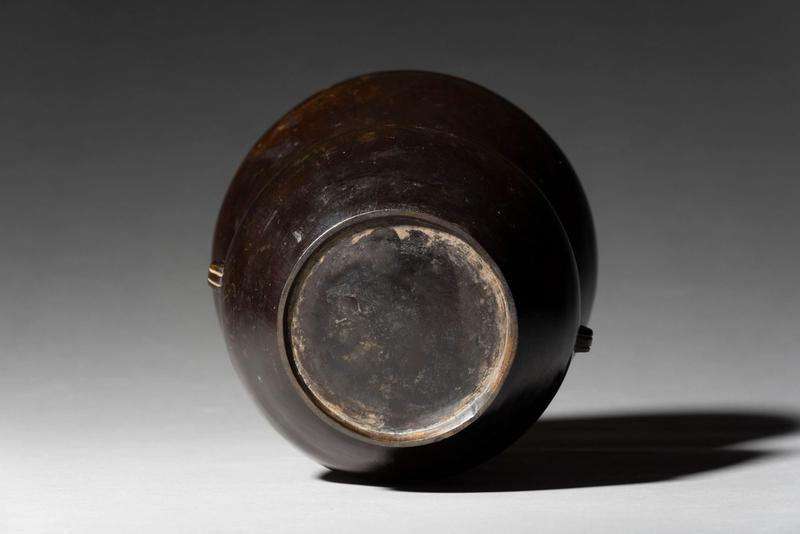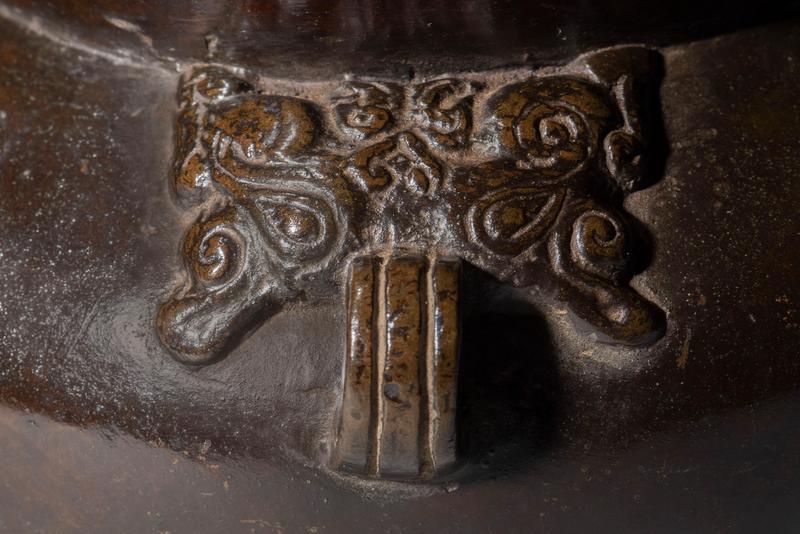A bronze flower vessel of the so-called ankoh (anglerfish) form with two Taotie mask ‘handles’ on the shoulder in relief.
Japan, 17th century, Edo period.
The form of this bronze vessel is after a type of Chinese ceramic chaire (tea caddy), a bulbous body with a tall, outspread neck and broad rim, which is called ankoh (anglerfish) chaire for its wide mouth is likened to the large mouth of this deep-sea fish.
This vase also exemplifies the development of forms in bronze vases made in the Edo period (1603-1868). From the early Edo period, Japanese bronze vessels tend not to directly copy the Chinese originals but rather transform them, sometimes exaggerating certain features, probably to adjust them to the changing styles of flower arrangement from the Muromachi period (1568-1616) onwards. The wide-mouthed bronze vases with a trumpet-shaped top are found in a scroll of flower arrangements (dated 1678), which suggests that the vases with a wide mouth such as this were made from the 17th century or earlier.
For a similar example and more about this theory of development of bronze vase forms from the 17th century onwards, see Joe Earle, Flower Bronzes of Japan, (London, 1995), p.36-42, especially no. 14.
Works of Art
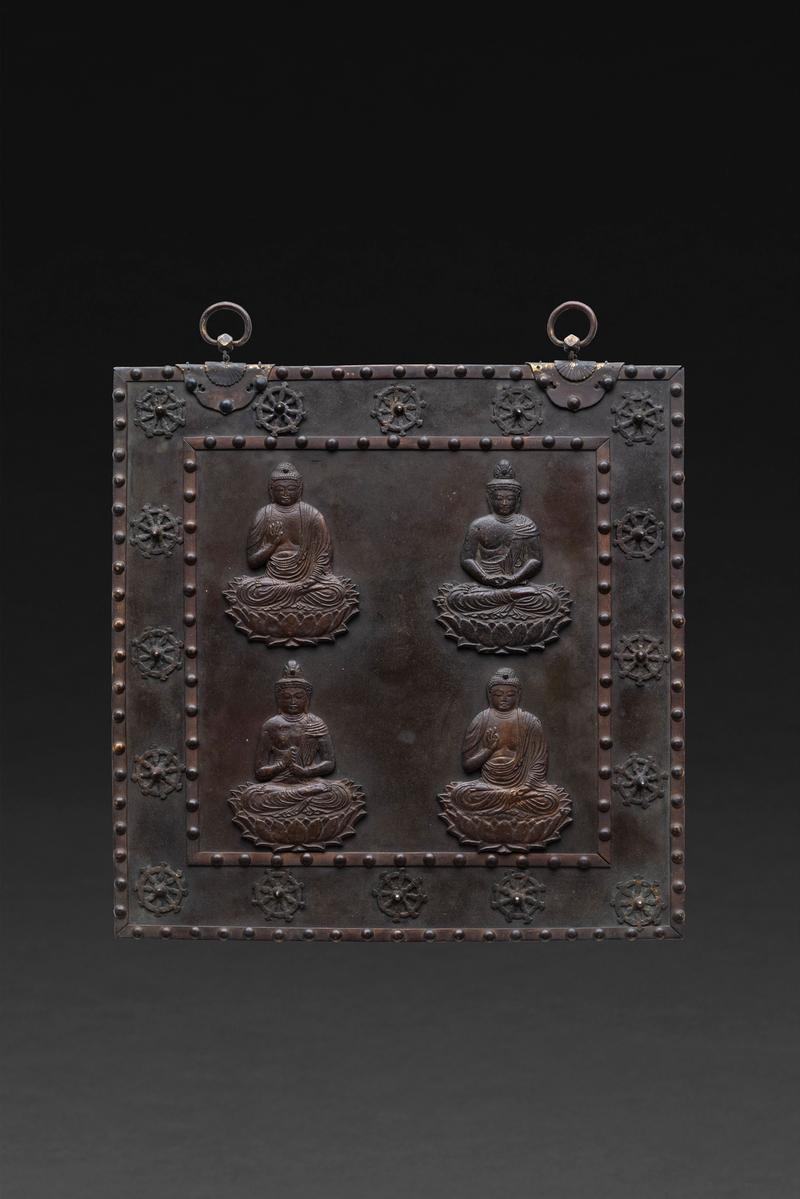
A kakebotoke
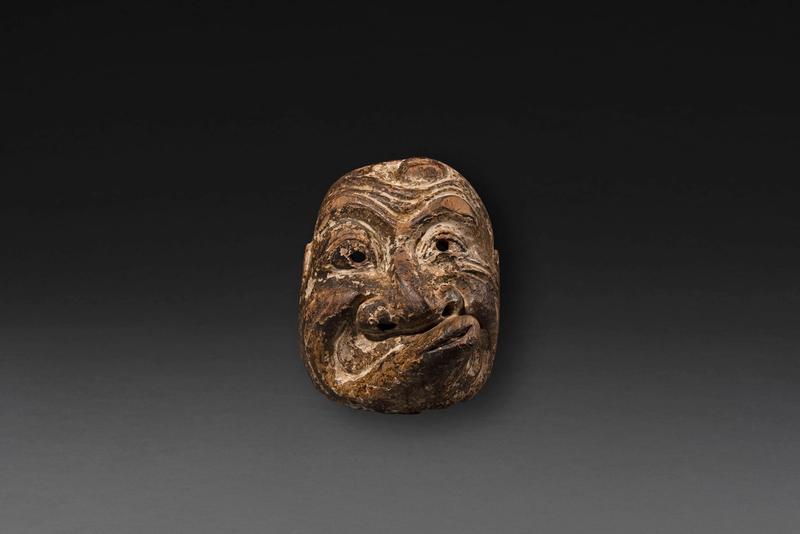
A wood Kyōgen mask of Usobuki
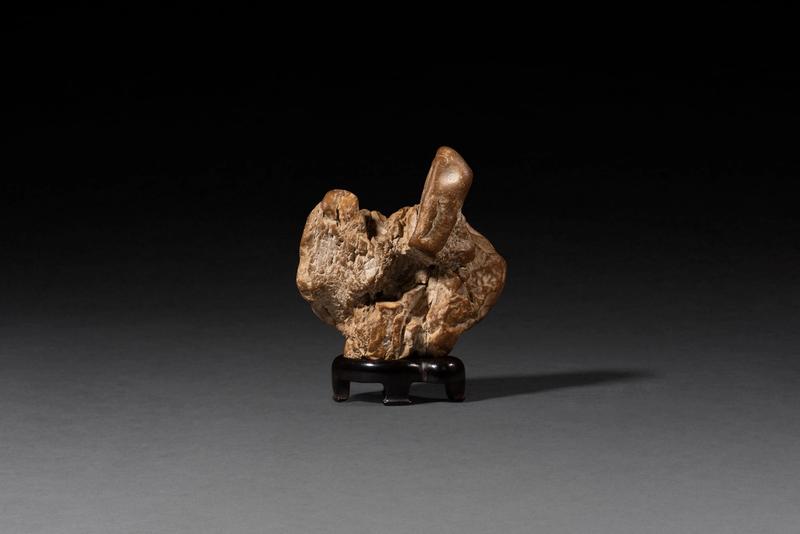
A Chinese Suiseki (viewing stone)
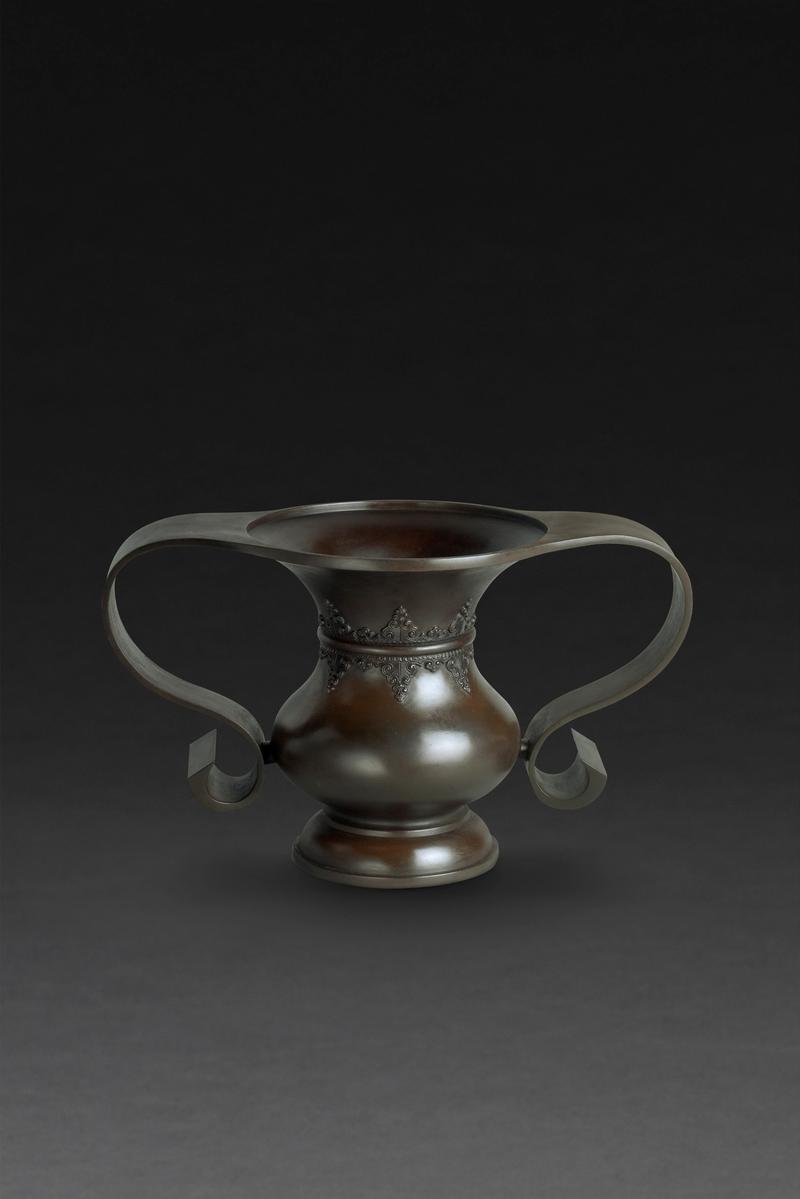
A bronze flower vessel of mimikuchi

A pottery kake hanaire (hanging flower vessel)

A red lacquer Kamakura-bori dai-kogo (incense box)

A Lacquered Shield

A bronze brazier
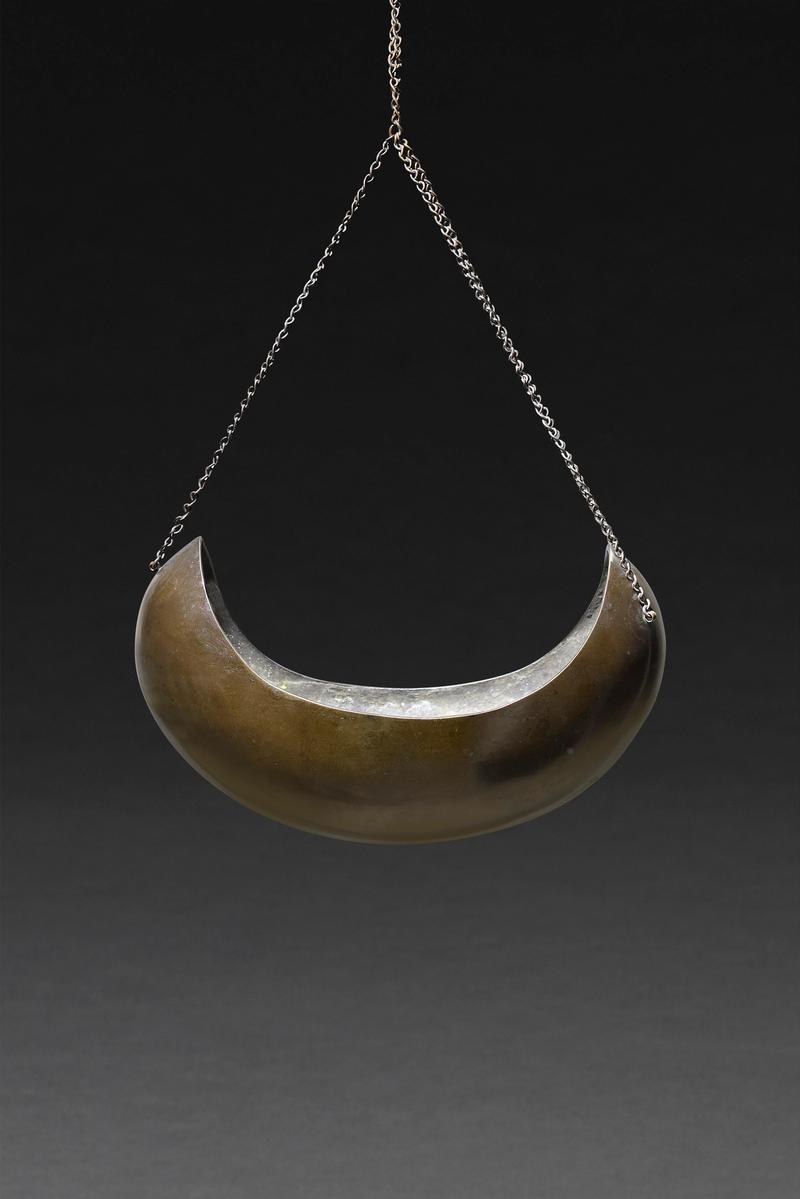
A bronze hanging flower vessel

A Chinese bronze censer
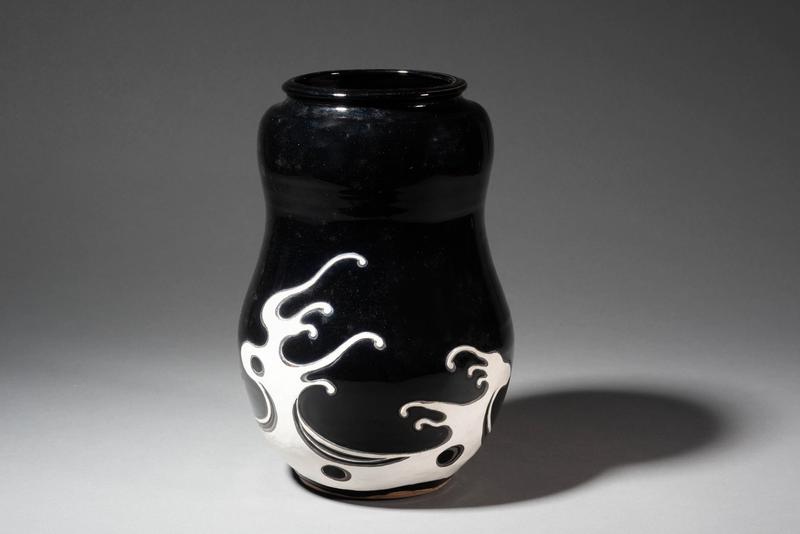
A ceramic vase by Makuzu Kōzan II

A ceramic te-aburi (hand warmer)
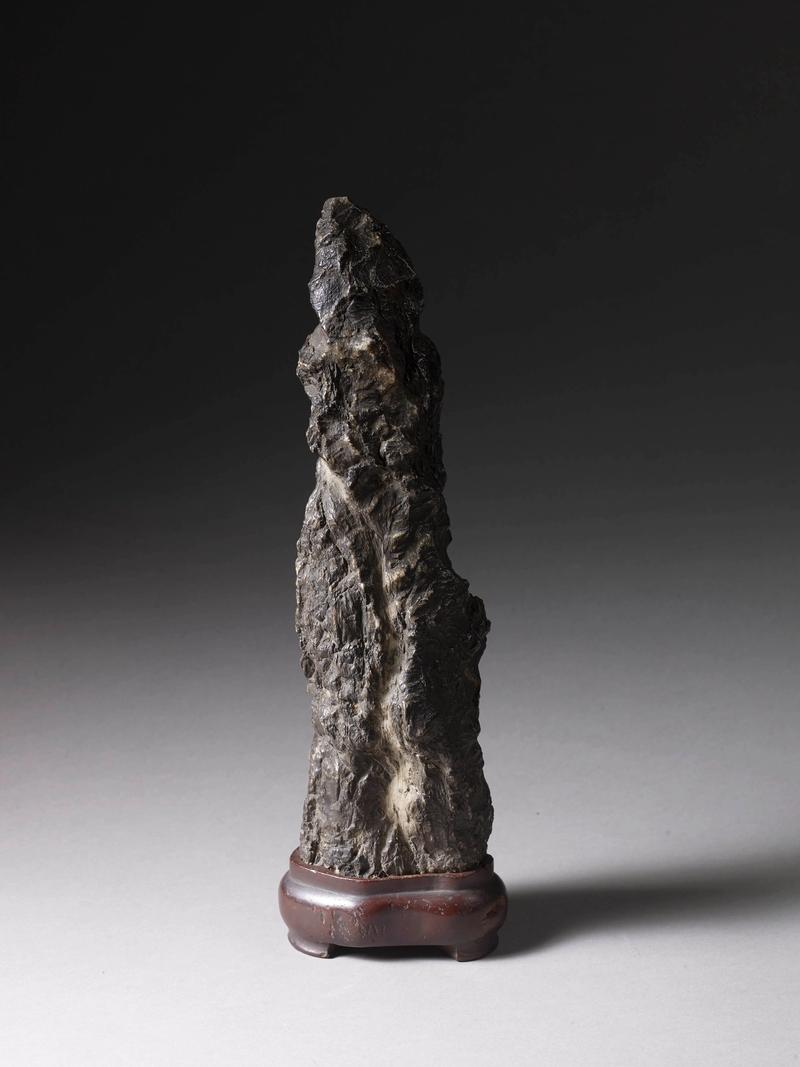
A suiseki (viewing stone) of vertical form with a natural striation resembling a waterfall, with wood stand
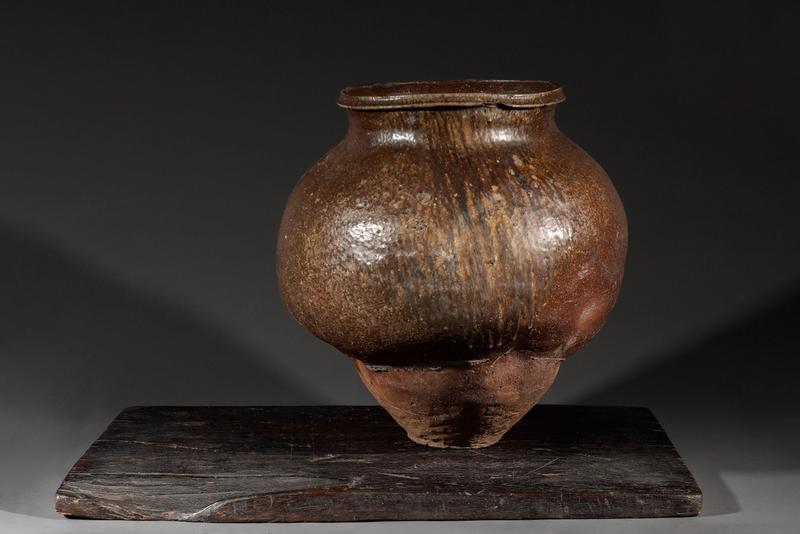
A Tokoname storage jar
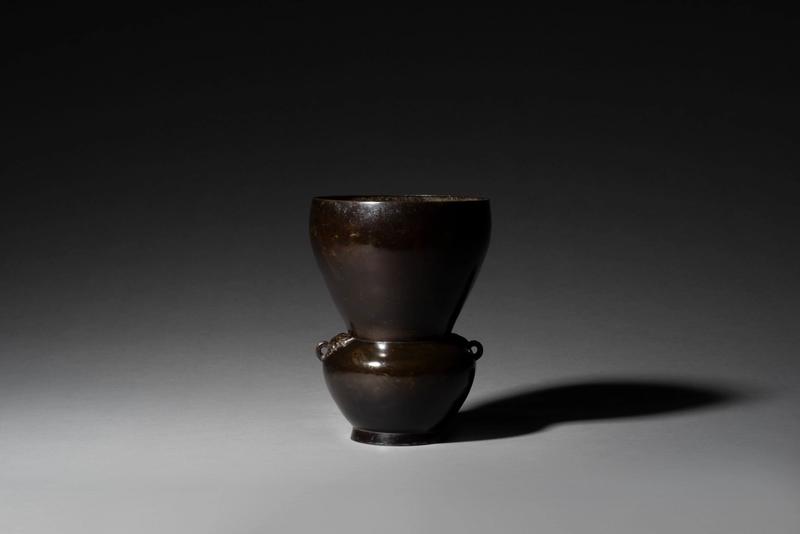
A bronze flower vessel
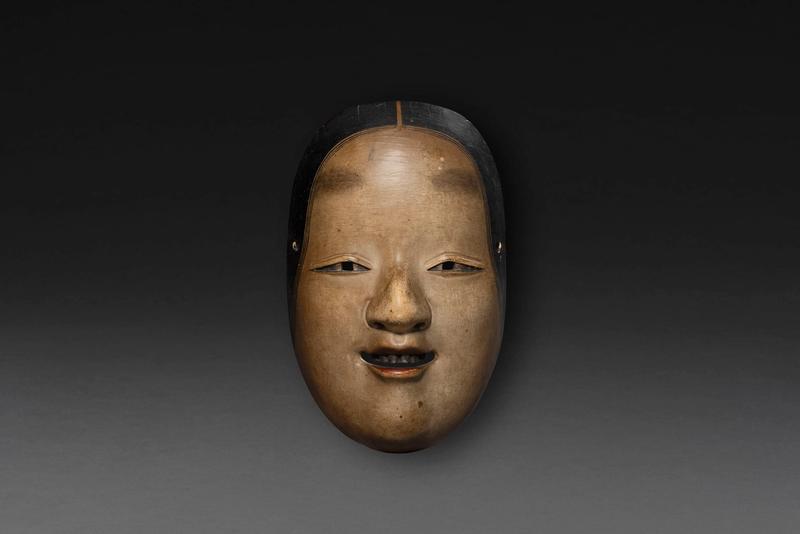
A wood Noh mask of Koomote

A black lacquer bon (tray)

A bronze brazier
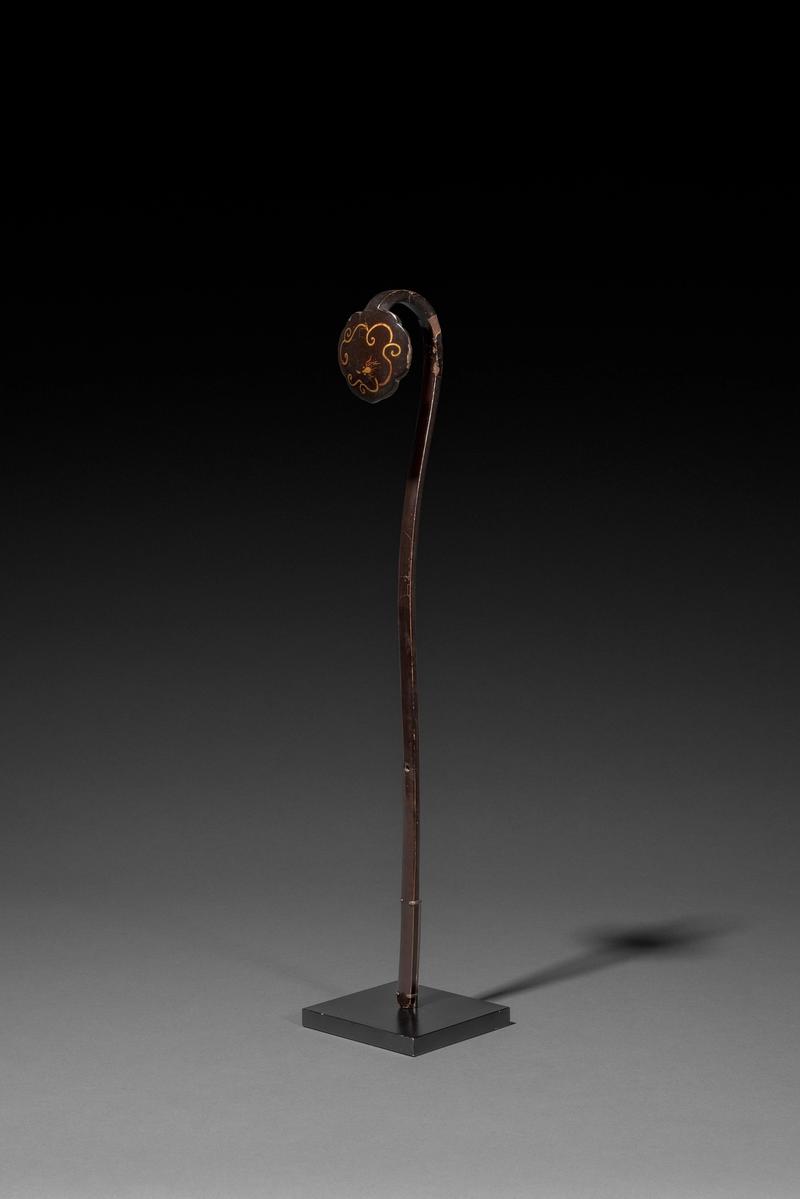
An iron nyoi

A Tokoname storage jar
